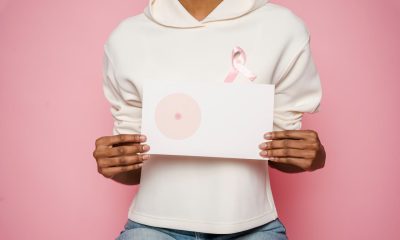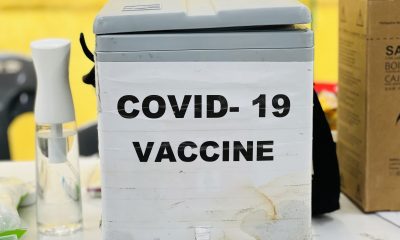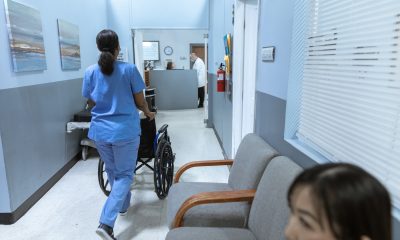Technology
Rogue Korean child monitoring app is back, researchers say

Citizen Lab and Cure53 now say the app appears to have been rebranded as “Cyber Security Zone” — the equivalent of putting a fresh coat of paint on a dangerous old clunker. (Photo: Citizen Lab/Twitter)
SEOUL, Korea, Republic Of — A South Korean child-monitoring smartphone app that was removed from the market in 2015 after it was found to be riddled with security flaws has been reissued under a new name and still puts children at risk, researchers said Monday.
The app “Cyber Security Zone” is part of government efforts to curb what authorities consider excessive cellphone use by young people. Parents are required by law to install monitoring software on smartphones for all children 18 and under.
The app is almost identical to a previous system, “Smart Sheriff,” which left children’s private information vulnerable to hackers, according to internet watchdog Citizen Lab at the University of Toronto. Both were developed under the auspices of MOIBA, the industry association for South Korean cellphone service providers.
“The flaws in the apps open the door to possible breaches of sensitive information including passwords, phone numbers, and other user data,” Citizen Lab said in a statement.
“Smart Sheriff” was one of a family of apps intended to monitor children’s online behaviour. Some, like Smart Sheriff, act as filtering or blocking tools, while others send alerts to parents if children swear or talk about sex or bullying.
The apps have raised privacy activists’ hackles, but experts have also been scathing about their lack of security. Cure53, a German auditing firm, said in 2015 that Smart Sheriff was “fundamentally broken.”
Citizen Lab and Cure53 now say the app appears to have been rebranded as “Cyber Security Zone” — the equivalent of putting a fresh coat of paint on a dangerous old clunker.
“Users are being misled,” said the Citizen Lab report.
MOIBA denied the two systems were the same and an official of the group said a review by the government’s Korean Internet & Security Agency found security for “Cyber Security Zone” satisfactory.
“We cannot agree to the opinion that the application was not developed with security in mind,” said the official, Noh Yong-lae.
Noh said MOIBA cut ties with the developer of “Smart Sheriff” and hired another company to update and develop apps.
KISA officials who looked at the Citizen Lab report said their agency’s audit failed to catch at least one security lapse: the app’s developer had not encrypted a key to the password. That stemmed from the app’s design.
“They should not have built the app this way,” said Kim Chan-il, a KISA manager. He said the government and MOIBA should make sure to hire developers who pay attention to security and have enough time to build an app.
An audit by KISA “does not guarantee security against all weaknesses,” Kim said.
Rates of smartphone and internet use in South Korea are among the world’s highest. The government operates filters to block access to pro-North Korean websites and material deemed pornographic.
South Korean authorities believe monitoring and censoring children’s smartphone use is part of the state’s duty to protect teenagers against harmful content such as pornography.
There is broad public support for the government to stop online behaviour that is deemed to be an addiction. The government spends public money to help users break habits of excessive computer gaming and internet use.
The backlash to “Smart Sheriff” prompted the government to ease enforcement by proposing a bill in parliament that would allow parents to opt out of installing a monitoring device.
The proposal “shows the government acknowledges its original position was wrong, but it’s not enough,” said Kelly Kim, general counsel at OpenNet Korea, a civic group, who co-authored the Citizen Lab report. “The mandate is unconstitutional and should be abolished.”
The child surveillance apps are part of a “clean internet” campaign launched by the government with MOIBA since 2013. MOIBA received nearly 963 million won ($853,000) this year for the campaign.
The South Korean telecom regulator, Korea Communications Commission, has promoted the two apps developed by MOIBA among teachers, parents and students.
Despite that, the app has received many negative reviews. The children’s version has been downloaded about 6,000 times and the parent version about 30,000 times.
A commission official, Kwon Man-sub, said if new security risks are found, the government is willing to review them.
“By law, we have a duty to protect juveniles,” Kwon said.





















